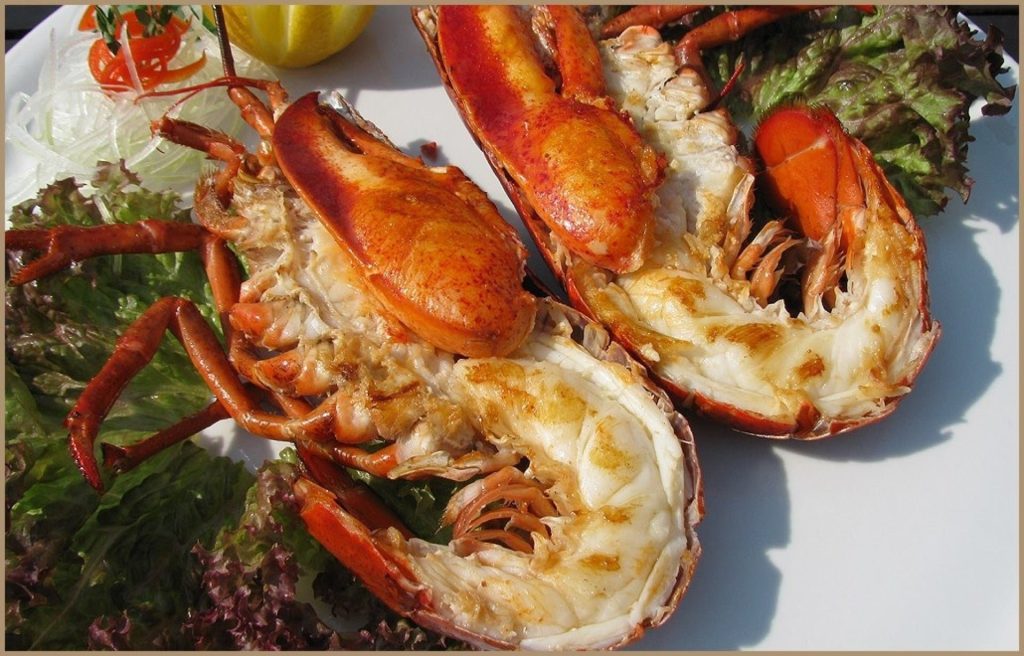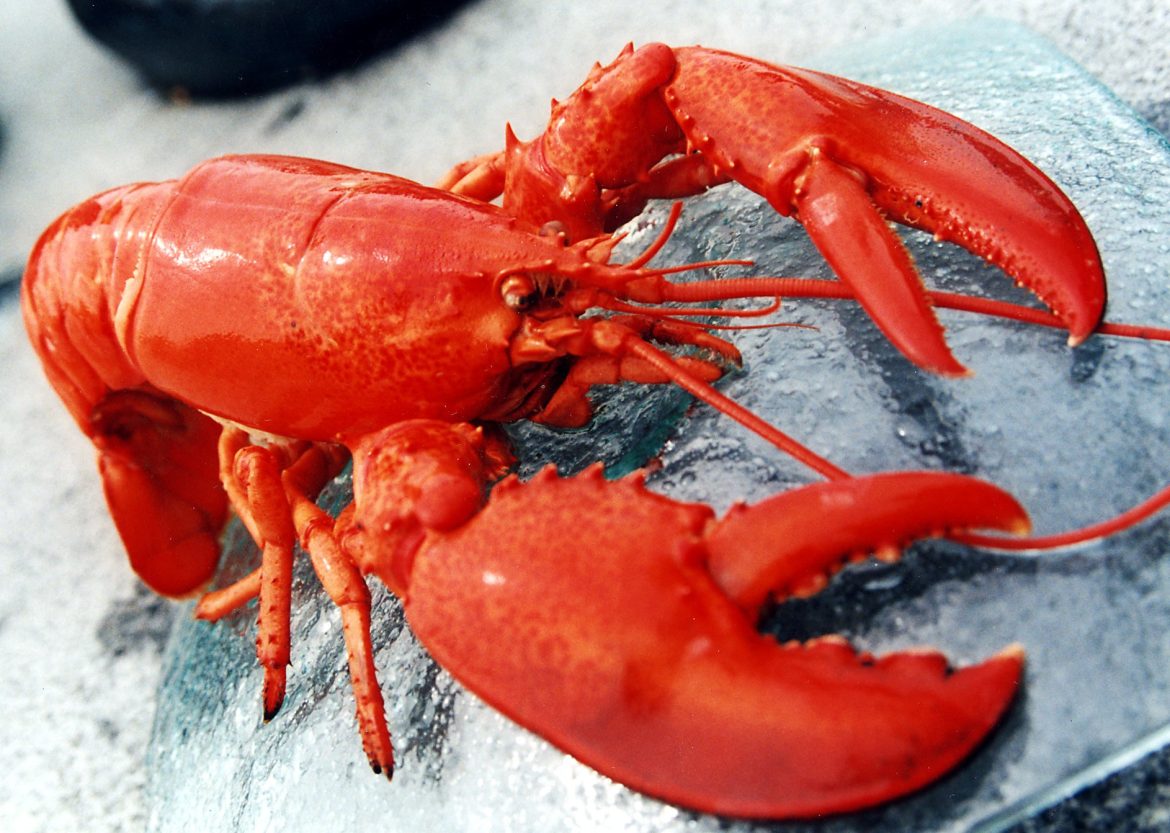Lobster, this Marine creature, with its delicious meat, unique taste and rich nutritional value, has become a delicacy sought after by diners all over the world. It not only occupies a pivotal position in the field of food, but also has left a profound mark in the long river of culture and history. Today, let’s explore the mystery of lobster and feel the dual charm of food and culture it contains.
First, the source and type of lobster
Lobsters, crustaceans belonging to the family Longbrachiidae of Decapoda, are widely distributed in tropical waters. They usually inhabit warm, shallow seas and feed on benthic animals and algae. Because of their different growing environments, lobster types are also quite rich, such as Boston lobster, Australian lobster, and so on, each has its own unique taste and flavor.
In China, the most common species of lobster is the Chinese lobster, which is often referred to as the “green dragon”. This kind of lobster has thin shell and tender meat, delicious taste, and is a hot item in the seafood market. In foreign countries, such as Boston lobster, known for its tender meat, delicious taste, is a high-end food in Western food.
- Characteristics and taste of lobster
Lobster meat is tender, delicious, and rich in protein, minerals and vitamins, nutritional value is very high. Its meat has a natural sweetness, with a variety of seasonings and cooking methods, can show a kalepe-changing flavor. Whether it is steamed, braised, stir-fried with garlic, or used to make lobster soup, it can leave a person with endless aftertaste.
In addition to the delicious meat, the shape of the lobster is also very ornamental value. Their hard carapaces and colorful, especially their huge pincers, are impressive. During the cooking process, the shell can also play a role in protecting the meat, making the lobster meat more tender and juicy after cooking.
Third, the status of lobster in food
In the food world, lobster can be described as a veritable “aristocrat”. Whether in an upscale restaurant or at a family gathering, a well-prepared lobster dish can always be the focal point of the table. Its unique taste and rich nutritional value make it shine in a variety of occasions.
Lobster is also the perfect ingredient for many chefs to show their skills. Through the use of various cooking techniques, lobsters can be made into a variety of flavors. From the simple steamed lobster to the complex lobster stew, each dish embodies the chef’s reverence for ingredients and pursuit of good food.
The cultural significance of lobster
In addition to occupying an important place in the gastronomic landscape, lobsters also play an integral role in culture and history. In many countries and regions, lobster is regarded as a symbol of auspiciousness and wealth. In some important festivals or celebrations, people often choose to treat guests with lobster to show respect and courtesy.
Lobsters also carry rich folk culture and legends. In some areas, people believe that lobsters have magical powers and can bring good luck and wealth. As a result, many interesting customs and rituals are incorporated into the process of catching and eating lobsters.

Five, my lobster love
When it comes to my love of lobster, it goes back a long way. I remember when I was a child, whenever the family came to visit, my father would buy several large lobsters to entertain everyone. I could not wait to stand around the kitchen door and watch my father handle these huge objects skillfully. Whenever the lobster is brought to the table, the attractive aroma always makes my mouth water.
As time went on, I also began to try to cook my own lobster. From the initial steaming to the later braising and stir-frying with garlic, each attempt has given me a deeper understanding of the delicious taste of lobster. And in this process, I also gradually understand the charm and fun of cooking.
I am now a veteran lobster-lover. Whenever friends get together or have a family dinner, I always serve a lobster dish that I have carefully prepared. Looking at everyone’s praise after tasting, my heart is also full of satisfaction and joy.
As a delicious ingredient and a cultural symbol, lobster occupies a pivotal position in people’s lives. It is not only a kind of food, but also a kind of emotional sustenance and cultural inheritance. I hope that through this article, more people can understand and fall in love with this delicious sea creature. At the same time, we also hope that while enjoying the food, we can cherish natural resources and protect the environment, so that this delicious food can continue for a long time.
In the coming days, let’s continue to explore the mystery of lobster and taste the dual charm of food and culture it contains! Whether it is at a family dinner or in a high-end restaurant, let the delicious lobster become our common topic and memory. I believe that with the passage of time, our love for lobster and insights will become more and more profound and rich.
Finally, I would like to say that lobster is not only a kind of food, but also a reflection of life attitude and culture. May we all find our own happiness and satisfaction in this delicious pursuit! While enjoying the delicious taste of lobster, you can also feel the cultural heritage and historical origin it carries. Let’s cheer for the charm of lobster!
With the development of globalization and logistics, lobster has gradually changed from a regional delicacy to a delicacy that can be tasted all over the world. This has further expanded the cultural influence of lobster, becoming a gastronomic language in international communication. Whether in the East or the West, lobster is a common food topic that can bring people closer and enhance friendship.
The development of lobster industry has also led to the prosperity of related industrial chains. From fishing, breeding to processing and sales, every link is full of business opportunities and vitality. Especially in some coastal areas, the lobster industry has become a local pillar industry, providing rich employment opportunities and economic sources for local residents.

While enjoying the delicious taste of lobster, we should also pay attention to the importance of Marine ecological protection. Reasonable fishing and farming methods are crucial to maintaining the balance of Marine ecology. As consumers, we can support environmental causes by choosing to buy lobster products that come from sustainably caught and farmed.
Lobster is not only a delicious ingredient, but also a cultural symbol and industry driving force. While tasting the delicious lobster, let us also cherish this gift from nature and jointly protect our blue home.
In the days to come, I look forward to the continuation, innovation and development of lobster as a food culture. Whether in cooking skills or in cultural inheritance, we hope to see more new breakthroughs and achievements. At the same time, I also hope that people will pay more attention to Marine ecological protection, so that lobsters, this delicious Marine creatures, can thrive in a healthy and sustainable environment, and bring us more beautiful taste buds and cultural enjoyment.
For me personally, lobster is not only a kind of food, but also an emotional sustenance. Every time I taste lobster, I am reminded of happy moments with my family and friends. Those around the table laughter, family and friendship of the warm moment, as if vividly. Therefore, for me, lobster is not only a taste buds of enjoyment, but also a carrier of emotional satisfaction and memories.
In this era of diversity, let’s taste lobster as a world cuisine and feel its cultural charm and historical heritage. Let lobster become our bridge of communication, connecting people from different cultures and regions, and jointly creating a better and more harmonious world.

